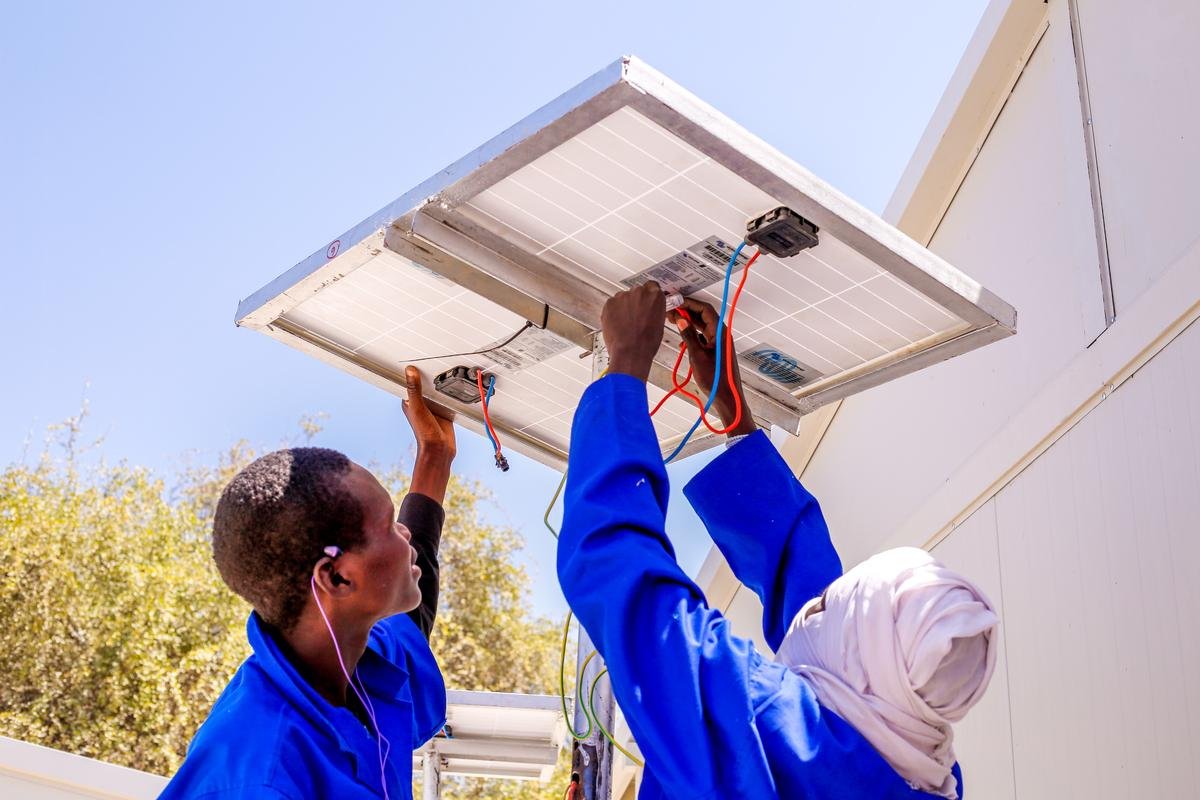Solar project
Solar Power for a Better Future
Solar power is particularly important in rural areas for several compelling reasons:
Energy Access: Many rural areas lack access to reliable electricity grids. Solar power provides a decentralized and off-grid energy solution, bringing electricity to remote communities where extending traditional grid infrastructure is costly or impractical. It helps bridge the energy access gap, improving the quality of life for rural residents.
Improvement in Education and Healthcare: Access to electricity through solar power enhances educational opportunities by providing lighting for schools and extending study hours for students. It also supports healthcare services by powering medical equipment, refrigeration for vaccines, and lighting for clinics, improving healthcare delivery and outcomes.

Cost-Effectiveness: Solar energy systems, such as solar panels and solar lanterns, offer affordable alternatives to expensive diesel generators or kerosene lamps. They reduce energy costs for households and businesses, freeing up financial resources that can be allocated to other essential needs such as education and healthcare.
Enhanced Livelihoods: Solar power supports economic activities in rural areas by powering agricultural machinery, irrigation systems, and small-scale businesses. It improves productivity, income generation, and job opportunities for local communities, contributing to poverty alleviation and economic development.
Environmental Sustainability: Solar power is a clean and renewable energy source that reduces reliance on fossil fuels, mitigates greenhouse gas emissions, and minimizes environmental impact in rural areas. It helps preserve natural resources and biodiversity, promoting sustainable development practices.
Resilience to Natural Disasters: Solar power systems are resilient to natural disasters such as hurricanes, floods, and earthquakes, which can disrupt traditional energy infrastructure in rural areas. Off-grid solar systems can continue to provide electricity during emergencies, ensuring communication, healthcare, and emergency response capabilities.
Empowerment and Community Development: Solar power empowers rural communities by providing them with control over their energy supply. It promotes local ownership and management of energy resources, fostering community cohesion, resilience, and self-sufficiency.
Water and Sanitation: Solar power can be used to power water pumps for irrigation and drinking water supply in rural areas. It improves access to clean water, enhances agricultural productivity, and supports hygiene and sanitation practices, thereby improving public health outcomes.
Technology Leapfrogging: Solar power facilitates technology leapfrogging in rural areas by providing a direct pathway to modern energy solutions without the need for extensive and costly infrastructure development. It accelerates socio-economic progress and enables leapfrogging over outdated energy technologies
In conclusion, solar power plays a transformative role in rural areas by providing sustainable, affordable, and reliable energy solutions that support economic development, improve quality of life, promote environmental sustainability, and enhance resilience to external shocks. Investing in solar energy infrastructure and policies can significantly contribute to achieving inclusive and sustainable development in rural communities in Uganda.
